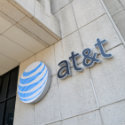
The executive in charge of AT&T's wireless strategy still isn't offering any clarity about how the operator will eventually charge for 5G services, despite boasting that AT&T is a "world leader" in 5G.
When questioned how AT&T might bill for its next-generation network, AT&T's John Donovan said that 5G is a "premium-priced network," but he added that it's "hard to say."
"Ultimately it's going to be a function of the value to the consumer and your competition," he said Wednesday in remarks at an investor event. "In certain applications it will be worth a lot, and in certain applications it will be worth a little. It's not even clear yet that it would show up in a plan as, 'Oh, this will just cost $5 more a month.' It may be embedded in applications that carry with it a different economic model. So I think 5G has the opportunity not only to put more value in the network but to alter what the business model is, to make it more of a three-sided business model than a two-sided business model."
Added Donovan on 5G pricing: "It's not really all that clear yet."
AT&T CEO Randall Stephenson echoed Donovan's ambiguity during comments earlier this year, arguing that AT&T could bill for 5G based on speed tiers.
"I would be very surprised if, as we move into wireless, the pricing regime in wireless doesn't look something like the pricing regime you see in fixed line," Stephenson said in April during the operator's quarterly conference call with analysts. "If you can offer a Gig speed, there are some customers that are willing to pay a premium, or 500-Meg to a Gig speed, and so forth. So I expect that to be the case. We're two or three years away from seeing that right now from a 5G standpoint."
Stephenson didn't provide any further specifics today.
Donovan's uncertainty over AT&T's 5G pricing stands in stark -- and somewhat ironic -- contrast to his boasting of AT&T's 5G rollout. He said the operator has already launched more than a dozen 5G markets using millimeter-wave spectrum, and remains on track to raise that number to almost 30 markets by the end of this year. Further, he reiterated that AT&T would offer nationwide 5G in spectrum below 6GHz in the first half of next year.
However, AT&T's 5G services remain restricted to "select" customers and cannot be purchased by regular consumers, thus adding a notable caveat to Donovan's 5G boasts.
Further clouding AT&T's 5G pricing strategy is the clarity that both Verizon and Sprint have provided about their own 5G fees. Verizon initially launched its millimeter-wave 5G service in two cities with a $10 surcharge to its two most expensive unlimited data plans, though the carrier has since retracted that fee for an unspecified amount of time. Sprint, meanwhile, isn't charging extra for 5G but is only offering it on its most expensive unlimited data plan.
T-Mobile, for its part, has not yet launched commercial 5G service, though has said that, when it does, it won't charge extra for the offering. That's likely because T-Mobile's 5G speeds in most places won't exceed 60 Mbit/s to 70 Mbit/s -- roughly half the speeds Sprint is currently providing and fully a sixth the 400 Mbit/s Verizon has promised in its relatively diminutive 5G coverage areas.
— Mike Dano, Editorial Director, 5G & Mobile Strategies, Light Reading | @mikeddano
About the Author(s)
You May Also Like




_International_Software_Products.jpeg?width=300&auto=webp&quality=80&disable=upscale)







